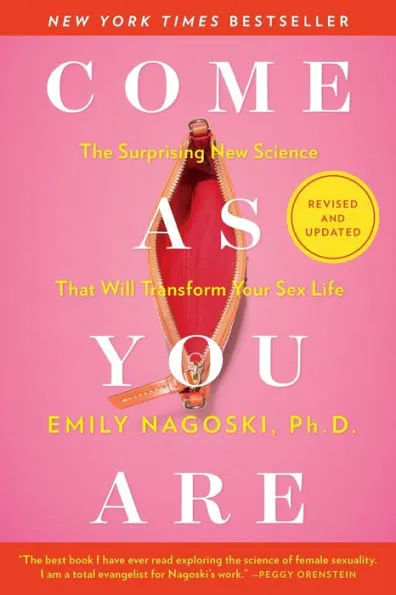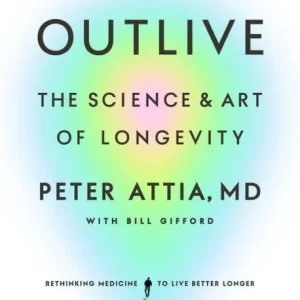Introduction:
“Come as You Are” by Emily Nagoski is a groundbreaking book that delves into the realms of human sexuality, challenging conventional wisdom and offering a fresh perspective on how individuals can understand and embrace their sexuality. Through a combination of scientific research, personal anecdotes, and practical advice, Nagoski invites readers to explore the complexities of sexual desire, arousal, and satisfaction.
Author Background:
Emily Nagoski, Ph.D., is a renowned sex educator, researcher, and author. She holds a doctorate in health behavior with a focus on human sexuality from Indiana University, where she currently serves as the Director of Wellness Education. Nagoski’s expertise in sexual health and her engaging writing style have made her a prominent figure in the field of sex education and advocacy.
Summary:
Unraveling the Myths of Sexuality:
Nagoski begins by dismantling common myths and misconceptions surrounding sexuality, challenging the notion of a “normal” sex drive and emphasizing the inherent diversity of human desire. She argues that societal expectations and cultural narratives often create unrealistic standards for sexual behavior, leading to feelings of inadequacy and shame.
The Dual Control Model:
Central to Nagoski’s exploration of sexuality is the dual control model, which posits that sexual arousal is governed by two distinct systems: the sexual accelerator and the sexual brakes. The accelerator responds to sexual cues and stimuli, while the brakes inhibit arousal in response to stress, anxiety, or other external factors. Understanding the interplay between these systems is crucial for cultivating a fulfilling sex life and overcoming barriers to intimacy.
Context Matters:
Nagoski emphasizes the importance of context in shaping sexual experiences, highlighting the role of environment, mood, and relational dynamics in influencing arousal and desire. She encourages readers to explore their individual erotic templates—the unique combination of stimuli and experiences that elicit sexual arousal—and to communicate openly with partners about their needs and preferences.
The Science of Arousal:
Drawing on the latest research in psychology, neuroscience, and physiology, Nagoski offers insights into the mechanics of sexual arousal and response. She explains how the brain processes sexual stimuli, the role of neurotransmitters such as dopamine and oxytocin, and the impact of stress on sexual function. By demystifying the physiological processes underlying arousal, Nagoski empowers readers to take control of their sexual well-being.
Navigating Sexual Challenges:
Throughout the book, Nagoski addresses common sexual challenges and provides practical strategies for overcoming them. Whether grappling with low desire, performance anxiety, or mismatched libidos, she emphasizes the importance of self-compassion, patience, and communication in navigating these obstacles. By reframing sexual difficulties as normal variations in human experience, Nagoski seeks to destigmatize issues surrounding sexuality and foster a culture of acceptance and support.
Cultivating Sexual Well-Being:
Ultimately, Nagoski advocates for a holistic approach to sexual well-being that encompasses physical, emotional, and relational dimensions. She encourages readers to prioritize self-care, establish healthy boundaries, and embrace pleasure as a fundamental aspect of human existence. By honoring their authentic desires and honoring the diverse expressions of sexuality, individuals can cultivate a more fulfilling and satisfying sex life.
Conclusion:
“Come as You Are” is a transformative exploration of human sexuality that challenges outdated norms and empowers readers to embrace their unique erotic selves. With compassion, insight, and humor, Emily Nagoski invites us to embark on a journey of self-discovery and self-acceptance, redefining what it means to be sexually fulfilled in a world fraught with judgment and expectation. Through her groundbreaking work, Nagoski has paved the way for a more inclusive and compassionate understanding of sexuality—one that celebrates diversity, fosters intimacy, and honors the inherent beauty of our erotic selves.

